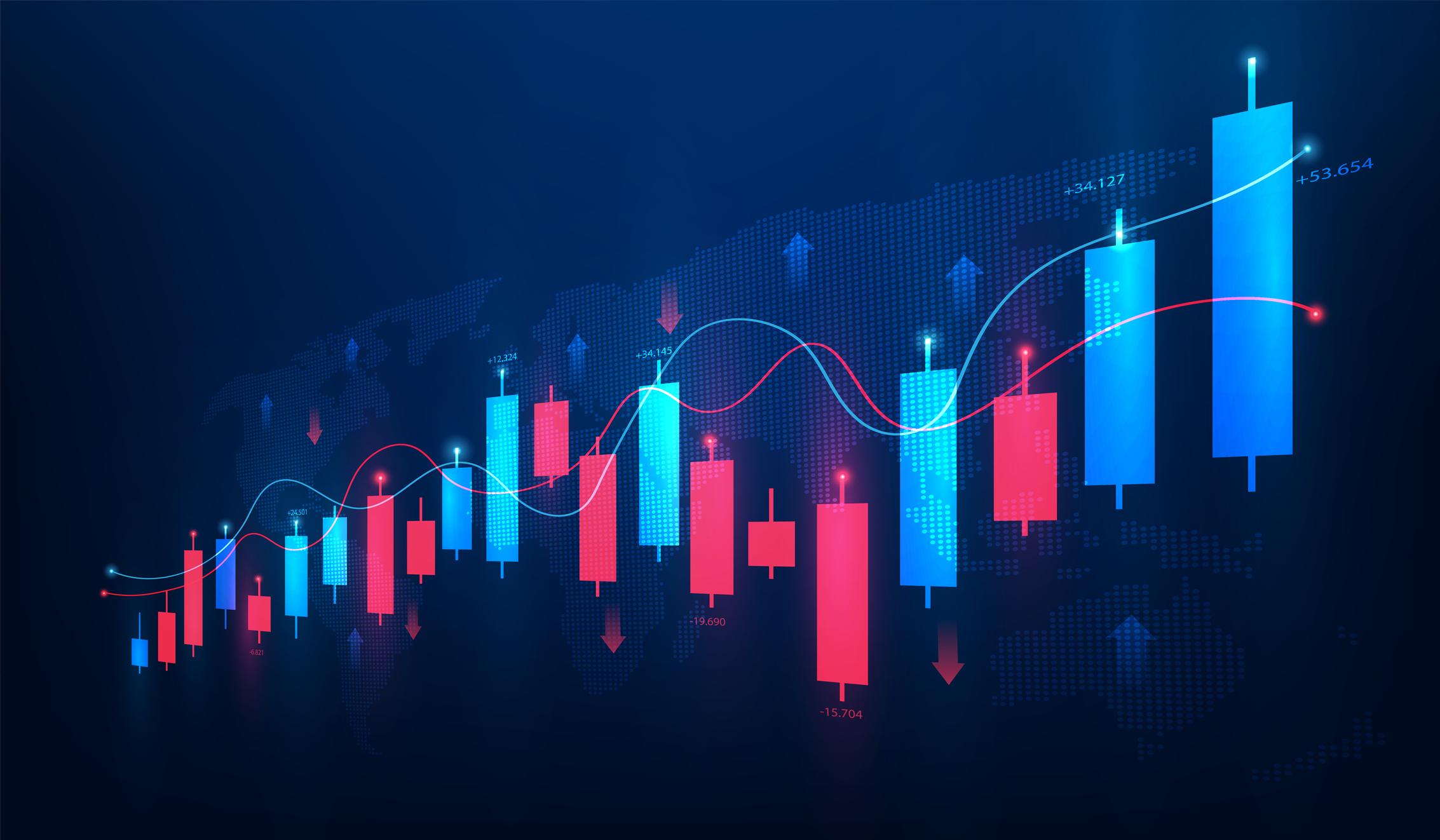Domestic Reserves of Natural Gas To Go Untapped?
Democrats are rethinking policies allowing extraction of gas locked up in rock. An ExxonMobil venture hangs in the balance.
Profit and prosper with the best of Kiplinger's advice on investing, taxes, retirement, personal finance and much more. Delivered daily. Enter your email in the box and click Sign Me Up.
You are now subscribed
Your newsletter sign-up was successful
Want to add more newsletters?

Delivered daily
Kiplinger Today
Profit and prosper with the best of Kiplinger's advice on investing, taxes, retirement, personal finance and much more delivered daily. Smart money moves start here.

Sent five days a week
Kiplinger A Step Ahead
Get practical help to make better financial decisions in your everyday life, from spending to savings on top deals.

Delivered daily
Kiplinger Closing Bell
Get today's biggest financial and investing headlines delivered to your inbox every day the U.S. stock market is open.

Sent twice a week
Kiplinger Adviser Intel
Financial pros across the country share best practices and fresh tactics to preserve and grow your wealth.

Delivered weekly
Kiplinger Tax Tips
Trim your federal and state tax bills with practical tax-planning and tax-cutting strategies.

Sent twice a week
Kiplinger Retirement Tips
Your twice-a-week guide to planning and enjoying a financially secure and richly rewarding retirement

Sent bimonthly.
Kiplinger Adviser Angle
Insights for advisers, wealth managers and other financial professionals.

Sent twice a week
Kiplinger Investing Weekly
Your twice-a-week roundup of promising stocks, funds, companies and industries you should consider, ones you should avoid, and why.

Sent weekly for six weeks
Kiplinger Invest for Retirement
Your step-by-step six-part series on how to invest for retirement, from devising a successful strategy to exactly which investments to choose.
Stricter environmental oversight of natural gas drilling is in the works. Congress is poised to lift an exemption from safe drinking water rules for hydraulic fracturing, a process for extracting gas from shale formations by injecting a mix of sand, water and chemicals into the shale at high pressure.
The process promises to greatly expand domestic production of natural gas, increasing energy independence. Moreover, to the extent it encourages power companies to shift from coal to natural gas as a fuel for generating electricity, hydraulic fracturing could ease the shift to a lower carbon economy.
“This hydraulic fracturing is a technique that has made major advances in the past few years and totally changed the outlook for natural gas supply,” says William J. Hederman, senior vice president for energy policy at Concept Capital’s Washington Research Group.
From just $107.88 $24.99 for Kiplinger Personal Finance
Become a smarter, better informed investor. Subscribe from just $107.88 $24.99, plus get up to 4 Special Issues

Sign up for Kiplinger’s Free Newsletters
Profit and prosper with the best of expert advice on investing, taxes, retirement, personal finance and more - straight to your e-mail.
Profit and prosper with the best of expert advice - straight to your e-mail.
But despite the technology’s promise as a way to help reduce greenhouse gas emissions, it is winning few friends among environmentalists and public health advocates. Critics have long alleged that the chemicals used in the process seep from the wells into the surrounding soil, contaminating the groundwater. In addition, drillers draw the large volumes of water they use in hydraulic fracturing from nearby rivers and streams, threatening agriculture, fishing and recreational businesses along those waterways. The issue has become particularly controversial in New York state, where any groundwater pollution could endanger the drinking water supply of New York City.
The Bush administration’s Environmental Protection Agency released a study in 2004 concluding that hydraulic fracturing posed little or no risk of contamination to groundwater. The report was contradicted almost immediately by an EPA whistle-blower, who noted that five of the seven members of the report’s external review panel appeared to have conflicts of interest. Nevertheless, the Republican-led Congress followed the agency’s official position, waiving Safe Drinking Water Act requirements for companies using the process.
The Obama administration’s EPA is preparing its own study on the potential water contamination risks of hydraulic fracturing. That will provide congressional Democrats with much of the leverage they’ll need to repeal the waiver sometime next year.
As a result, vast reserves of shale gas may go untapped for years. Many independent drillers will abandon the effort rather than bear higher costs of safeguarding water. “Independents do most of the drilling in the U.S.,” says Frank Verrastro, director of the Energy and National Security Program at the Center for Strategic and International Studies. “If independents aren’t able to afford it, big majors could move in, but they also have LNG [liquefied natural gas] investments.”
But deep-pocketed energy firms may focus on LNG imports and other natural gas sources rather than spend extra resources to comply with stricter regulations. For example, Exxon Mobil Corp. last week announced that it would purchase Fort Worth, Texas-based XTO Energy for $31 billion. The merger agreement, however, includes a clause that would nullify the deal if Washington enacts legislation that would make hydraulic fracturing too costly.
Rep. Ed Markey (D-MA), chairman of the energy and environment subcommittee of the House Energy and Commerce Committee, has already taken an interest. Markey says that, while the Exxon-XTO deal highlights the importance of natural gas to reducing America’s carbon footprint, “this proposed merger also raises a number of issues with respect to the future direction of the U.S. domestic oil and gas industry, competition within the industry, and the potential environmental impact of increased unconventional natural gas development.” He plans to hold hearings on the merger early next year.
For weekly updates on topics to improve your business decisionmaking, click here.
Profit and prosper with the best of Kiplinger's advice on investing, taxes, retirement, personal finance and much more. Delivered daily. Enter your email in the box and click Sign Me Up.
-
 Ask the Tax Editor: Federal Income Tax Deductions
Ask the Tax Editor: Federal Income Tax DeductionsAsk the Editor In this week's Ask the Editor Q&A, Joy Taylor answers questions on federal income tax deductions
-
 States With No-Fault Car Insurance Laws (and How No-Fault Car Insurance Works)
States With No-Fault Car Insurance Laws (and How No-Fault Car Insurance Works)A breakdown of the confusing rules around no-fault car insurance in every state where it exists.
-
 7 Frugal Habits to Keep Even When You're Rich
7 Frugal Habits to Keep Even When You're RichSome frugal habits are worth it, no matter what tax bracket you're in.
-
 An Inflection Point for the Entertainment Industry
An Inflection Point for the Entertainment IndustryThe Kiplinger Letter The entertainment industry is shifting as movie and TV companies face fierce competition, fight for attention and cope with artificial intelligence.
-
 The U.S. Economy Will Gain Steam This Year
The U.S. Economy Will Gain Steam This YearThe Kiplinger Letter The Letter editors review the projected pace of the economy for 2026. Bigger tax refunds and resilient consumers will keep the economy humming in 2026.
-
 Humanoid Robots Are About to be Put to the Test
Humanoid Robots Are About to be Put to the TestThe Kiplinger Letter Robot makers are in a full-on sprint to take over factories, warehouses and homes, but lofty visions of rapid adoption are outpacing the technology’s reality.
-
 Trump Reshapes Foreign Policy
Trump Reshapes Foreign PolicyThe Kiplinger Letter The President starts the new year by putting allies and adversaries on notice.
-
 Congress Set for Busy Winter
Congress Set for Busy WinterThe Kiplinger Letter The Letter editors review the bills Congress will decide on this year. The government funding bill is paramount, but other issues vie for lawmakers’ attention.
-
 The Kiplinger Letter's 10 Forecasts for 2026
The Kiplinger Letter's 10 Forecasts for 2026The Kiplinger Letter Here are some of the biggest events and trends in economics, politics and tech that will shape the new year.
-
 Dow, S&P 500 Rise to New Closing Highs: Stock Market Today
Dow, S&P 500 Rise to New Closing Highs: Stock Market TodayWill President Donald Trump match his Monroe Doctrine gambit with a new Marshall Plan for Venezuela?
-
 'Donroe Doctrine' Pumps Dow 594 Points: Stock Market Today
'Donroe Doctrine' Pumps Dow 594 Points: Stock Market TodayThe S&P 500 rallied but failed to turn the "Santa Claus Rally" indicator positive for 2026.